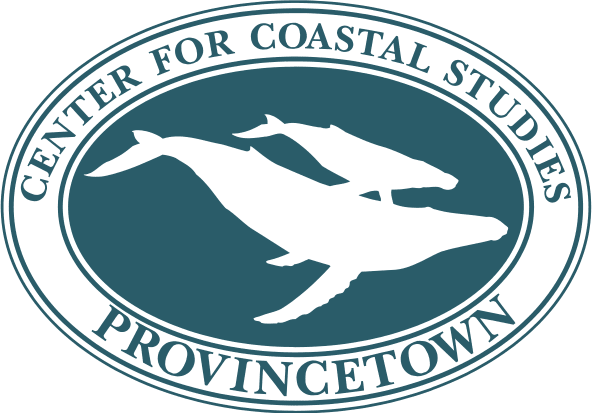Nantucket Sound
Review of the State and Federal Marine Protection of the Biological Resources of Nantucket Sound
Executive Summary

Mature gray seals battling at breeding time.
On October 22, 2002, the Provincetown Center for Coastal Studies (CCS) was asked by U.S. Representative William Delahunt (MA-10th District) for an assessment of the biological resources and environmental protection of the state and federal waters of Nantucket Sound. In response to this request, PCCS prepared the following document, detailing the biological significance of the species contained therein, as well as a review of pertinent existing and proposed state and federal protection of these waters. The purpose of this review is to gather existing facts regarding the biodiversity and ecological significance of the region and to highlight areas where additional study may be necessary.
Nantucket Sound contains significant ecological, commercial and recreational resources that have been at the heart of several past nominations for enhanced environmental protection and conservation policies within the region. The biological diversity and unique habitat areas of Nantucket Sound led the Commonwealth of Massachusetts to nominate the area for National Marine Sanctuary status in a 1980. The resources of Nantucket Sound were again deemed worthy of consideration for National Marine Sanctuary status by the resource evaluation committee appointed by the National Marine Sanctuary Program in 1983. These resources are equally significant today. Nantucket Sound is a recognized habitat for many state and federally protected species, including roseate terns, piping plovers, leatherback sea turtles, loggerhead sea turtles, Kemp’s Ridley sea turtles, and grey seals.
Our review uncovered several localized studies and species-specific biological surveys throughout published literature, unpublished reports and on-going data collection. While of intrinsic value, these studies have not addressed management mechanisms for integrating and coordinating environmental management for resident or migratory species that rely on the Sound. As a result, much of the available information considers only pieces of an ecological whole, resulting in fragmented understanding of dynamic ecosystem processes and species interactions.
Current management focuses upon ecologically arbitrary divisions of a contiguous coastal resource, resulting from overlapping state and federal jurisdiction of these waters. Past state and federal nominations to protect these waters as a national marine sanctuary suggest the inherent ecological, commercial, and recreational values of Nantucket Sound. PCCS recommends a multidisciplinary task force study of the Nantucket Sound bio-geographical region to assess the existing habitat, species utilization’s, and commercial and recreational values of the area in order to facilitate consistent environmental management and conservation of protected marine resources. The existing data collected by state, federal, and private agencies will greatly facilitate such a study by providing a base for designing a broad study of the entire system. Development of comprehensive ecosystem management begins with thorough, scientific evaluation of the resources and processes of the entire system designed to support a unified environmental policy for the continued use, study and protection of this valuable coastal resource.
Read full report – Adobe PDF Format (900 KB)
Review of the State and Federal Marine Protection of the Biological Resources of Nantucket Sound
Nantucket Sound
Center for Coastal Studies
Chase-Miller Forum
Friday, November 22, 2013, 9:30 am – 1:30 pm
Bay State Room
Massachusetts Maritime Academy
Shifting Coasts – Planning and Action in a Changing Environment
9:00- 9:30: Sign- in and Refreshments
9:30: Welcome and Opening Remarks
Pat Hughes, Marine Policy Director, Center for Coastal Studies
Keynote Address: Land-use Planning in the Dynamic Coastal Zone- an Overview of Challenges posed by a Changing Coastal Environment
Chad McGuire, Associate Professor of Environmental Policy, UMass Dartmouth
Assessing Vulnerability and Raising Local Awareness of Risks from Storms, Changing Shorelines and Sea Level Rise in Buzzards Bay
Joe Costa, PhD., Executive Director, Buzzards Bay National Estuary Program, MCZM
Encouraging Construction and Re-Construction of Storm- resistant Buildings through Financial Incentives and a Zoning Overlay District, Hull
Anne Herbst, Conservation Administrator and Robert Fultz, Director of Planning and Community Development
11:00-11:15 Break
Implementation of an Innovative Tool for Cape and Island towns -the District of Critical Planning Concern (DCPC) – to protect the Black Point/Great Sippewissett Marsh, Falmouth
Jennifer McKay, Conservation Administrator and Elizabeth Gladfelter, Chairman, Conservation Commission
Economic Incentives for Addressing Coastal Change- the National Flood Insurance Program’s Community Rating System (CRS)
Ryan Bennett, Cape Cod Commission Energy and Hazard Mitigation Specialist and Susan Leven, Brewster Town Planner
Closing Comments: Lessons Learned & Next Steps
Chad McGuire, Associate Professor of Environmental Policy, UMass Dartmouth
Informal discussion and lunch buffet
